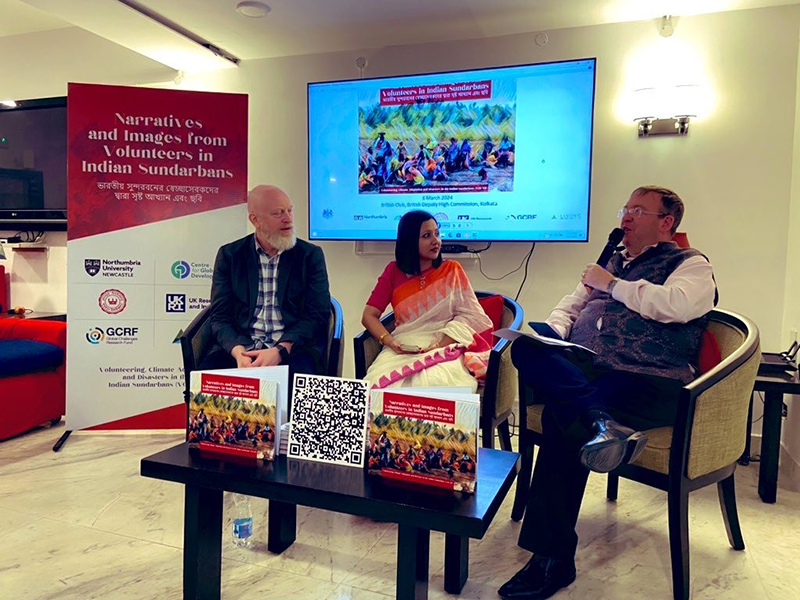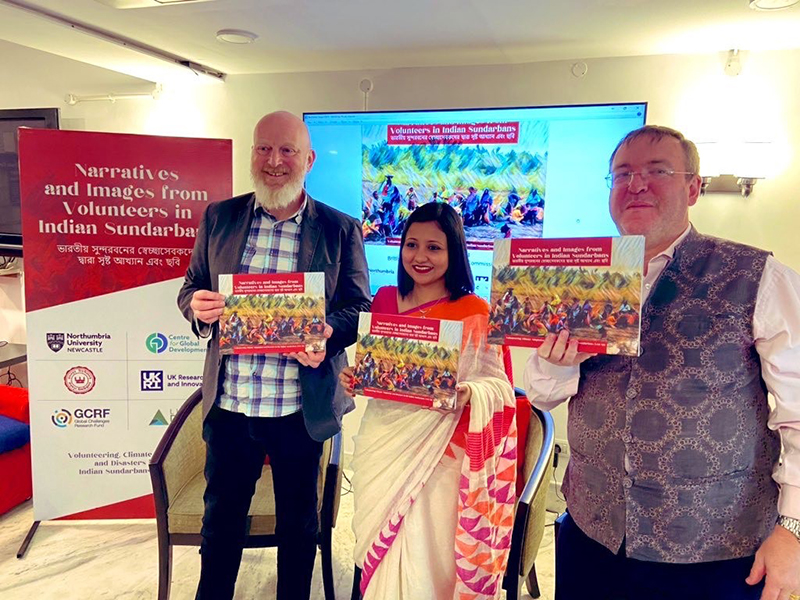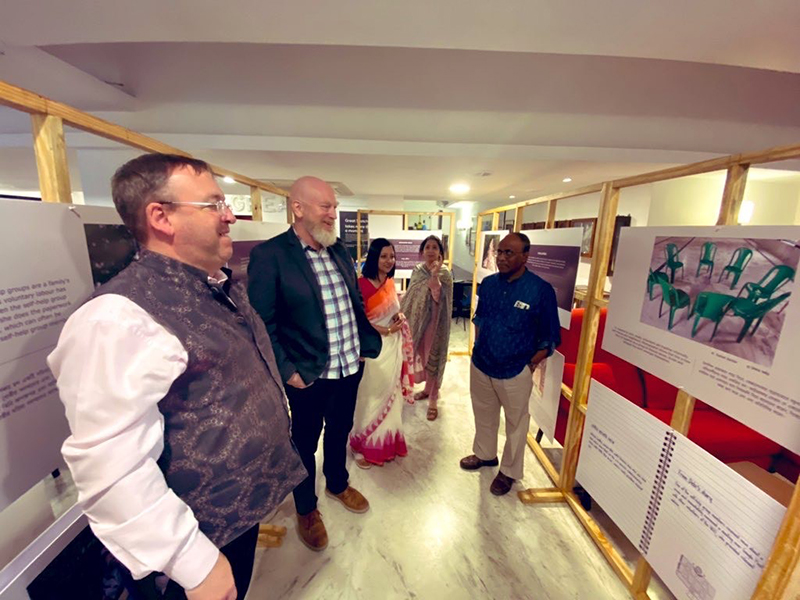 Sundarbans
Sundarbans
Kolkata's British Deputy High Commission hosts photography exhibition on the role of voluntary work in meeting challenges of climate change in Indian Sundarbans
The British Deputy High Commission hosted a photography exhibition and the launch of a bilingual photobook showcasing the findings of research on the role of voluntary work in meeting the challenges of climate change in the Indian Sundarbans at the British Club on March 6.
The research and photo exhibition challenges the usual narrative on volunteering by those who are well-off through its focus on the voluntary work of marginalised communities, the British Deputy High Commission said in a statement.
"This work often goes unrecognised, but is a critically important part of many people’s lives, and of communities’ strategies for coping with climate change in the Sundarbans," it said.
A cluster of low-lying islands found in the Bay of Bengal, the Sundarbans is spread across India and Bangladesh, and is famous for its unique mangrove forests. The active delta region is among the largest in the world, measuring about 40,000 square kilometres.
The research has been conducted as part of Living Deltas, a transdisciplinary research Hub funded by the UK Government’s Research and Innovation Fund and Global Challenges Research Fund.

The research team, led by Professor Matt Baillie Smith (Northumbria University, UK) and Sumana Banerjee (Jadavpur University, India) used participatory approaches, including photography and diary writing, to prioritise the voices and experiences of community members in the Sundarbans. This provides unique and important insights into the ways those community members think about and participate in voluntary work.
The book and exhibition share images and diary entries produced by community members in the Sundarbans, illustrating the role that voluntary work plays in adapting and responding to climate-related disaster, and maintaining the region’s delicate eco-system. They show how it can help challenge social norms and play a critical role in maintaining and protecting infrastructures, such as embankments. But they also show that this work does not come without challenges.
The exhibition and book call for recognition of the importance of voluntary work by marginalised communities in meeting the challenges of the climate crisis. They also aim to prompt change through the creation of more inclusive and fair approaches to volunteer mobilisation.

Andrew Fleming, British Deputy High Commissioner to East & Northeast India, said: “I am proud to introduce what is both a powerful and beautiful book, but also an important piece of research built on a strong UK-India collaboration. I hope the insights shared here can be widely disseminated and contribute to ensuring we do all we can to protect fragile but vital ecosystems such as the Indian Sundarbans.”
Matt Baillie Smith, Professor of Global Development and Dean of Research Culture at Northumbria University, said: “Working in partnership with Jadavpur University and with organisations and communities in the Sundarbans has enabled us to do research that really requires us to think differently about the role of voluntary work and the challenges of climate change. The work that communities do cannot be taken for granted. It can bring important benefits, but stakeholders need to come together to make sure that it is recognised and supported effectively and fairly.”
Support Our Journalism
We cannot do without you.. your contribution supports unbiased journalism
IBNS is not driven by any ism- not wokeism, not racism, not skewed secularism, not hyper right-wing or left liberal ideals, nor by any hardline religious beliefs or hyper nationalism. We want to serve you good old objective news, as they are. We do not judge or preach. We let people decide for themselves. We only try to present factual and well-sourced news.







